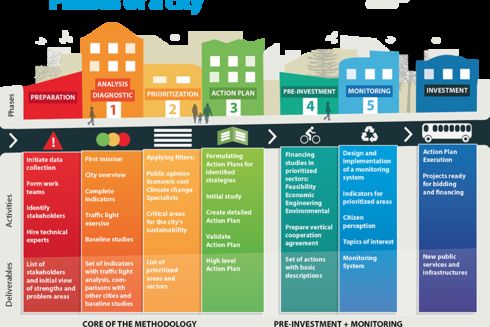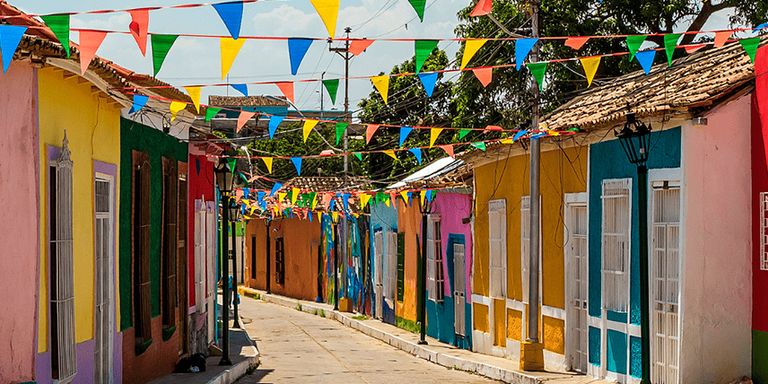
Latin America and the Caribbean is the most urbanized developing region on the planet, with 8 out of 10 people living in cities. Between 1950 and 2014, the region urbanized at an unprecedented rate, raising its urban population from 50 to 80 per cent (as per cent of total); a figure that is expected to climb to 86 per cent by 2050. Over the past two decades, the region’s urban population and economic growth has been increasingly taking place in intermediate sized cities, which are expanding exponentially.
The Emerging and Sustainable Cities Program (ESC) of the Housing and Urban Development Division of the IDB is a non-reimbursable technical assistance program providing direct support to national and subnational governments in the development and execution of city action plans. ESC employs a multidisciplinary approach to identify, organize and prioritize urban interventions to tackle the main roadblocks that prevent the sustainable growth of emerging cities in Latin America and the Caribbean. This transversal approach is based on three pillars:
- environmental and climate change sustainability;
- urban sustainability;
- fiscal sustainability and governance.
Emerging cities in Latin America and the Caribbean need planning processes that are specific and action-oriented—capable of bringing about quality of life for citizens in the region. ESC’s Methodology is based on the premise that urban development strategies that are well-planned, integrated, and cross-sectoral, can ensure improvements in the quality of life for citizens and help materialize a more sustainable, resilient, and inclusive future for emerging cities in the region.
The program has been working on strengthening the ESC Methodology by including topics related to local economic development, competitiveness and productive employment creation. The proposed methodological adjustment stipulates a new set of 10 topics, 15 subtopics and 17 indicators. ESC’s Methodology is organized in a two-stage, five phase process:

It begins by executing a rapid diagnostic tool to identify the sustainability challenges of a city. Afterwards, topics (i.e. water, air quality, transparency, etc.) are prioritized through the use multiple filters – environmental, economic, public opinion and sector specialist expertise – to identify issues that pose the greatest challenges in a city’s pathway towards sustainability. Finally, an action plan is formulated, containing prioritized interventions and a set of strategies for their execution across the short-, medium- and long-term.

The execution phase begins with the preparation of pre-investment studies for prioritized interventions and the implementation of a citizen monitoring system.
Video available only in Spanish
Methodological guide: spanish (3rd. edition, 2nd. edition), English, Portuguese
Indicators annex: spanish (3rd. edition, 2nd. edition), English, Portuguese
Competitiveness annex: Spanish
Towards an Initiative for Emerging and Sustainable Cities: Spanish
Discover the topics in which we work to improve lives in Latin America and the Caribbean.
Explore our offices across countries and the work they do to improve lives.
